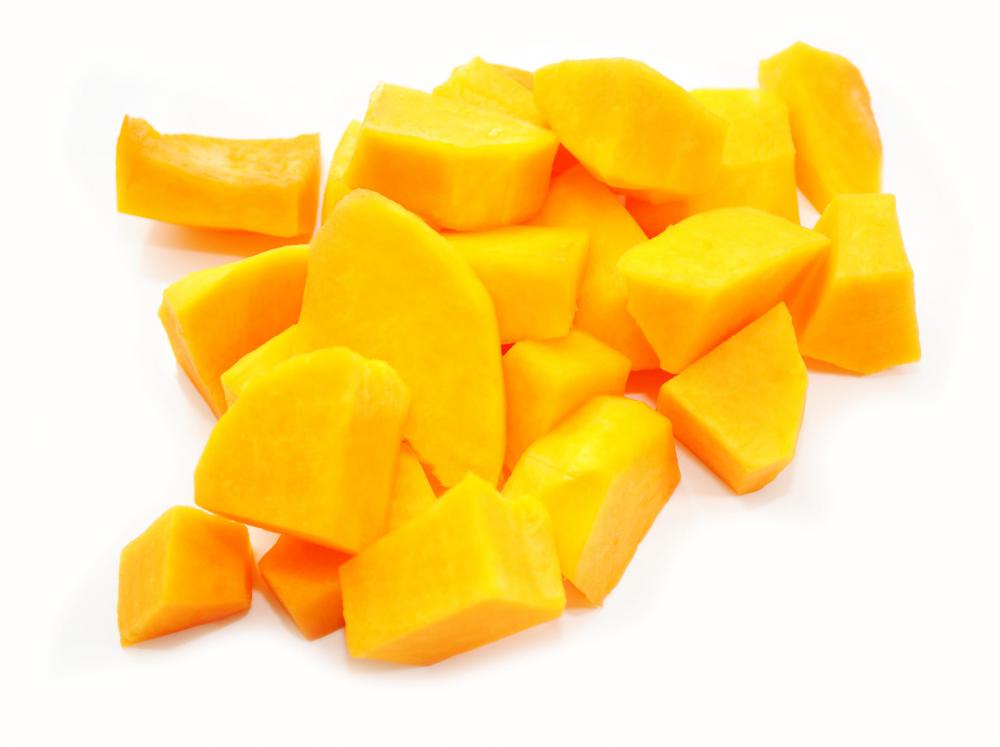At WiseGEEK, we're committed to delivering accurate, trustworthy information. Our expert-authored content is rigorously fact-checked and sourced from credible authorities. Discover how we uphold the highest standards in providing you with reliable knowledge.
What Is the Nutritional Value of Butternut Squash?
Butternut squash is a type of winter squash, harvested when it is fully mature and able to be stored well into the winter. There are many other kinds of winter squash, including acorn, Hubbard, and banana squash. The nutritional value of butternut squash is similar to other types of winter squash in that it is low in calories and high in fiber. It also contains some essential vitamins and minerals.
A typical serving of butternut squash is about 1 cup of small cubes, or about 5 ounces (142 g). This amount contains about 63 calories and 16 grams of carbohydrates. It also includes dietary fiber that is important for good health, and has very little fat. Fiber aids in the digestive process, is beneficial to the heart, and helps those who eat it to feel more full with less food, which can benefit those trying to limit their food intake.

In addition to supplying fiber, calories, and carbohydrates, another part of the nutritional value of butternut squash is that it includes significant levels of four important vitamins. The most notable of these is vitamin A. One serving of this squash has almost 300% of the minimum daily requirement for vitamin A, as recommended by the US Food and Drug Administration (FDA).

The vitamin A in winter squash is mostly in the form of beta carotene; the body absorbs it best when it is prepared with a small amount of fat. When cooking butternut squash, a bit of butter or oil added to it will allow the beta carotene to best be used. This vitamin benefits the body in many ways, one of the most well known of which is that it helps to promote good vision.
Included in the nutritional value of butternut squash is a high level of vitamin C, an antioxidant vitamin that may be helpful in the removal of harmful free radicals, a type of environmental toxin, from the body. One serving of butternut squash contains about half the body’s daily requirement of this crucial nutrient. It also has a significant amount of vitamins B6 and E. A single serving provides about a tenth of the daily requirements for both of these.
Butternut squash also provides significant levels of manganese, magnesium, and potassium. One serving has about 12 to 14% of the necessary daily levels of each of these minerals. This is another reason why the nutritional value of butternut squash can be a beneficial part of a regular daily diet.
AS FEATURED ON:
AS FEATURED ON:












Discuss this Article
Post your comments